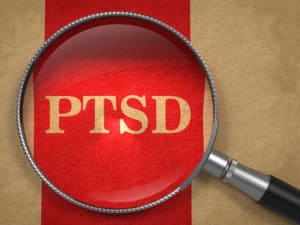 Post-traumatic stress disorder (PTSD) is quite common – with roughly 8 million people reported to have PTSD in the United States – and yet the condition remains fairly misunderstood. In honor of Mental Illness Awareness Week, we’re setting the record straight on some of the most common and damaging myths surrounding PTSD. Share this information and help to stop the stigma and encourage people with PTSD to get the help they need and deserve.
Post-traumatic stress disorder (PTSD) is quite common – with roughly 8 million people reported to have PTSD in the United States – and yet the condition remains fairly misunderstood. In honor of Mental Illness Awareness Week, we’re setting the record straight on some of the most common and damaging myths surrounding PTSD. Share this information and help to stop the stigma and encourage people with PTSD to get the help they need and deserve.
- Only military veterans can get PTSD. While PTSD does impact American soldiers, it can also impact someone who has lived through sexual assault, domestic abuse, a natural disaster, car accident or terrorist attack. What’s more, the event doesn’t have to be life-threatening. For instance, PTSD can be caused by an unexpected loss of a loved one.
- PTSD makes people prone to violent behavior. PTSD has a wide range of symptoms, including anxiety and avoidance symptoms like social isolation. This typically occurs out of fear of facing any potential PTSD triggers.
- If trauma happened long ago, you should be “over it.” While symptoms can show up three months after a traumatic event, PTSD can also be triggered years or even decades later. This is typical for adults who have suppressed memories of physical or sexual abuse as a child.
- PTSD is a sign of weakness. PTSD is a serious, chronic mental health condition that can take decades to treat. Seeking treatment isn’t weak. On the contrary, it takes a brave person to open up and explore past trauma.
Help for PTSD and Addiction About 60 percent of those who suffer from PTSD also battle addiction, and vice versa. In fact, people who suffer from PTSD are two to four times more likely to have a substance use disorder than their peers without PTSD. When alcohol or drugs are used to manage PTSD symptoms, the symptoms of the disorder can become worse. If you or someone you love is struggling with a co-occurring substance use disorder and PTSD, we can help you take the first step toward a life of permanent sobriety. To learn more about our programs and recovery services, call today: 866-461-1759.


